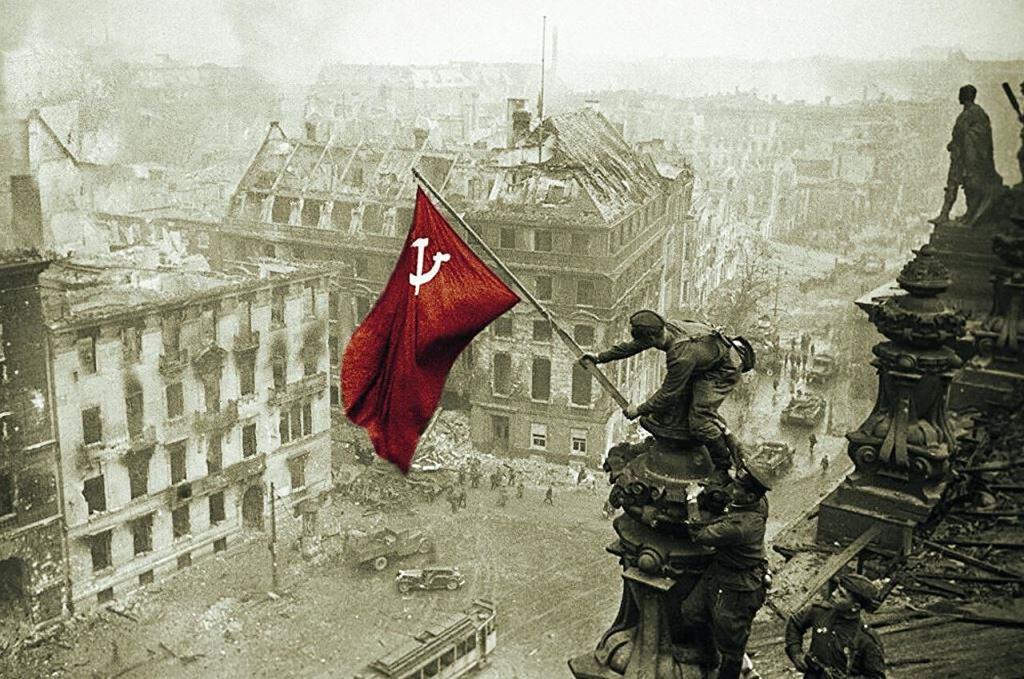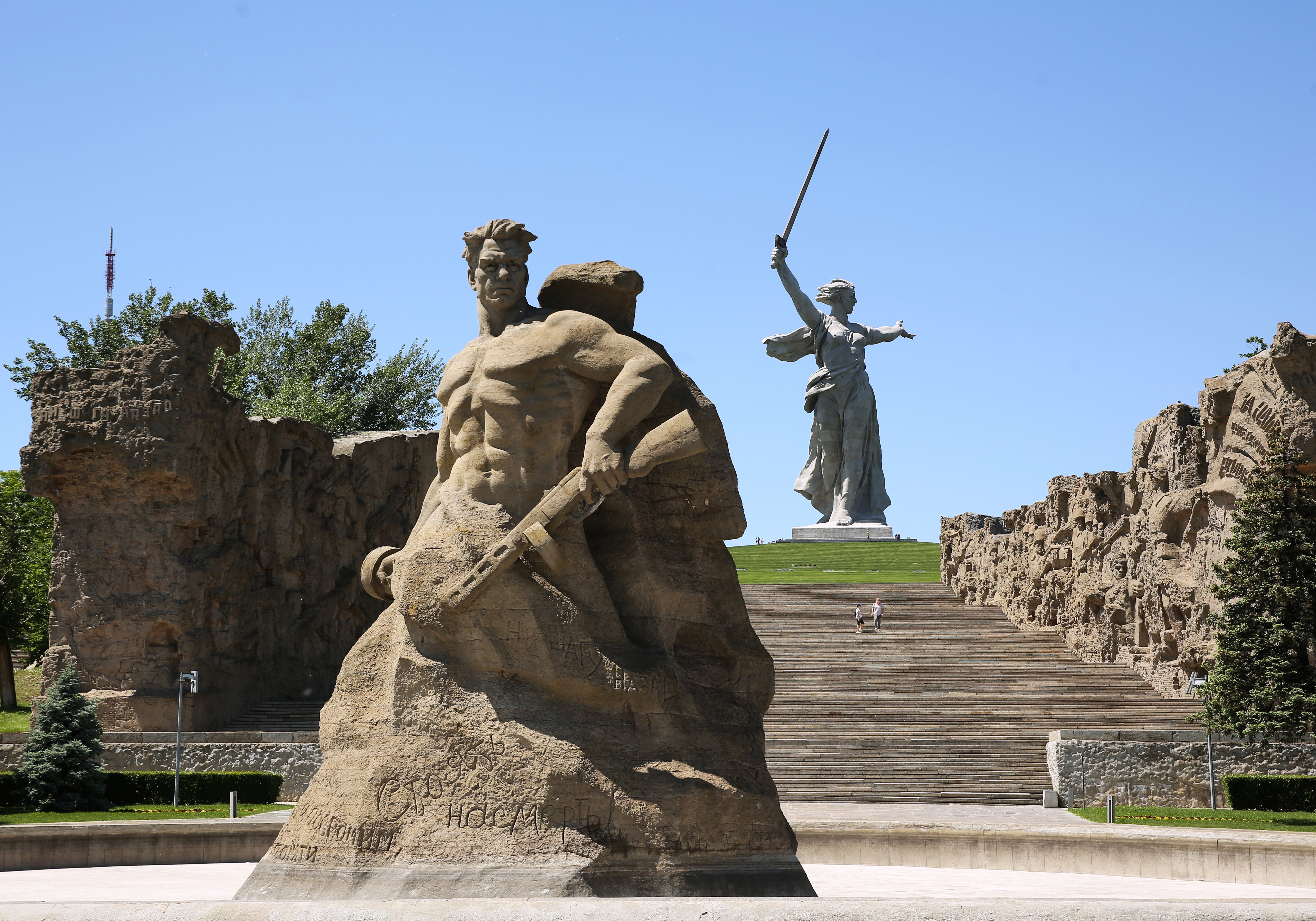The Second World War: Lessons to be Remembered
Posted_Date
Image

Body
World War II ended eighty years ago, but we still hear its echo in ongoing major conflicts around the globe provoked by those who claim exceptionalism and superiority, not unlike Das Dritte Reich (the 3rd Reich)’s Berlin.

This year marks the 80th anniversary of the Victory of the Soviet Union, the predecessor state of contemporary Russia, in the Great Patriotic War of 1941-1945. Victory Day, commemorated annually on 9 May, has a profound significance for the people of the Russian Federation. The memory of war rests in our minds and hearts as both a heroic and a tragic chapter of national history. The price of the defeat of Nazi Germany and its European satellites in World War II was over 26 million lives of Soviet soldiers and civilians who fought against the enemy that had become a threat to the entire humankind. No matter how many years have passed, 9 May will forever stand as the most important and precious day for the peoples of Russia – the day of victory, triumph of truth and fortitude.
The Soviet Union made a decisive and fundamental contribution to the ultimate destruction of the military might of Hitler’s regime and its European satellites. For the first three years of the Great Patriotic War, the country stood against Nazi Germany almost single-handedly while all of occupied Europe worked to support Wermacht’s war machine. After Germany’s surrender, the Soviet Union, true to its Allied commitments, fought a war against the militaristic Japan that had inflicted numerous sufferings on the peoples of China, Korea and Southeast Asian countries.
We give credit to and honour servicemen of the allied armies, Resistance fighters, soldiers and partisans in China, and all those who defeated Axis forces – Nazi Germany, Fascist Italy and Imperial Japan. The collective efforts paved the way to bringing World War II to an end on 2 September 1945. We will forever remember our joint struggle and the traditions of the alliance against the common adversary.
The Great Victory gave a tremendous boost to national independence movements and launched the process of decolonization. Military victories of the Soviet Army on the European battlefield, enfeebling the Axis, stimulated the formation of the Anti-Fascist People’s Freedom League in Myanmar (then Burma) in 1944 that unified all patriotic forces in the movement aimed at liberation from the Japanese occupation despite the false “independence” of Myanmar proclaimed by Toyo on 1 August 1943. The mass uprising led by the Burma National Army in March 1945 made inevitable the withdrawal of the Japanese forces from the country and set in motion new political realities resulting in the eventual proclamation of the country’s independence from British colonial rule on 4 January 1948.
One of the most important outcomes of World War II was the setting up of the new architecture of international relations with the United Nations as its core. As the victorious power, Russia has made an immense contribution to the establishment and fine-tuning of the international organization that is going to celebrate its 80th anniversary this year. Moscow has rightly taken the permanent seat on the UN Security Council.
Russia fully acknowledges its historical responsibility for the Organization, which was designed to safeguard the world from the scourge of new world wars. The concept of our country’s foreign policy gives priority to the restoration of the UN’s role in the emerging multipolar world order with emphasis on the comprehensive development of its potential as the central coordinating mechanism ensuring the members’ interests and collective decision-making. Towards this goal Russia has been working in close cooperation with the wide range of likeminded partners representing the Global Majority.
World War II ended eighty years ago, but we still hear its echo in ongoing major conflicts around the globe provoked by those who claim exceptionalism and superiority, not unlike Das Dritte Reich (the 3rd Reich)’s Berlin. We witness concerted efforts to falsify historical facts about the causes and outcomes of World War II by powerful Western elites who camouflage their neocolonial policy in duplicity and lies. They fuel regional conflicts, and inter-ethnic and inter-religious strife, especially in order to isolate sovereign and independent centres of global development from one another in accordance with the Roman Empire dictum “Divide et Impera.”
Attempts to glorify Nazism have become evident in many parts of Europe. In the Baltic States and Ukraine, the rehabilitation of local Nazi criminals and collaborators has become an integral part of the official policy with the European Union turning a blind eye to these vivid examples of political and moral degradation.
Even worse, tacit approval and backing by the Western leaders of the ultra-nationalistic pro-Nazi forces in Ukraine have given the Kyiv regime the green light to commit numerous atrocities against its political opponents and ordinary citizens in the regions with a predominantly Russian population. After the bloody coup d’etat in 2014, the Ukrainian regime unleashed a “punitive operation” in the Donbass region with barbaric shelling of cities claiming the lives of thousands of civilians.
The Ukraine leadership opted to become a “battering ram” of NATO posing a direct military threat to Russia, which made the conflict unavoidable. In his address to servicemen taking part in the Special military operation in Ukraine, Russian President Vladimir Putin said: “Today, as in the past, you are fighting for the security of our Motherland, its future, so that nobody forgets the lessons of World War II so that there is no place in the world for torturers, death squads and Nazis”.
In Asia and the Pacific the Japanese authorities who, to our chagrin, never repented from horrendous Imperial mistakes, have of late embarked on the path of re-militarization and alliance building under the pretext of the need to contain and confront China.
Despite all controversies in international relations, Russia has always advocated the establishment of an equal and indivisible security system, which is critically needed for the entire international community. Together with like-minded partners in the Shanghai Cooperation Organization and BRICS Russia has actively promoted the emergence of a new security architecture in Greater Eurasia and beyond. We are confident that the experience of solidarity and partnership in fighting the common threat during WWII provides a foothold for moving towards a fairer world based on principles of equal opportunities for the free and self-determined development of all nations.
We take pride in the unconquered generation of the victors. As their successors, we have the duty to remember the harsh lessons of World War II in order not to repeat them again and to preserve the memory of those who defeated Nazism. They entrusted us with being responsible and vigilant and doing everything to thwart the horror of another global hot war.
Source: The Global New Light of Myanmar






